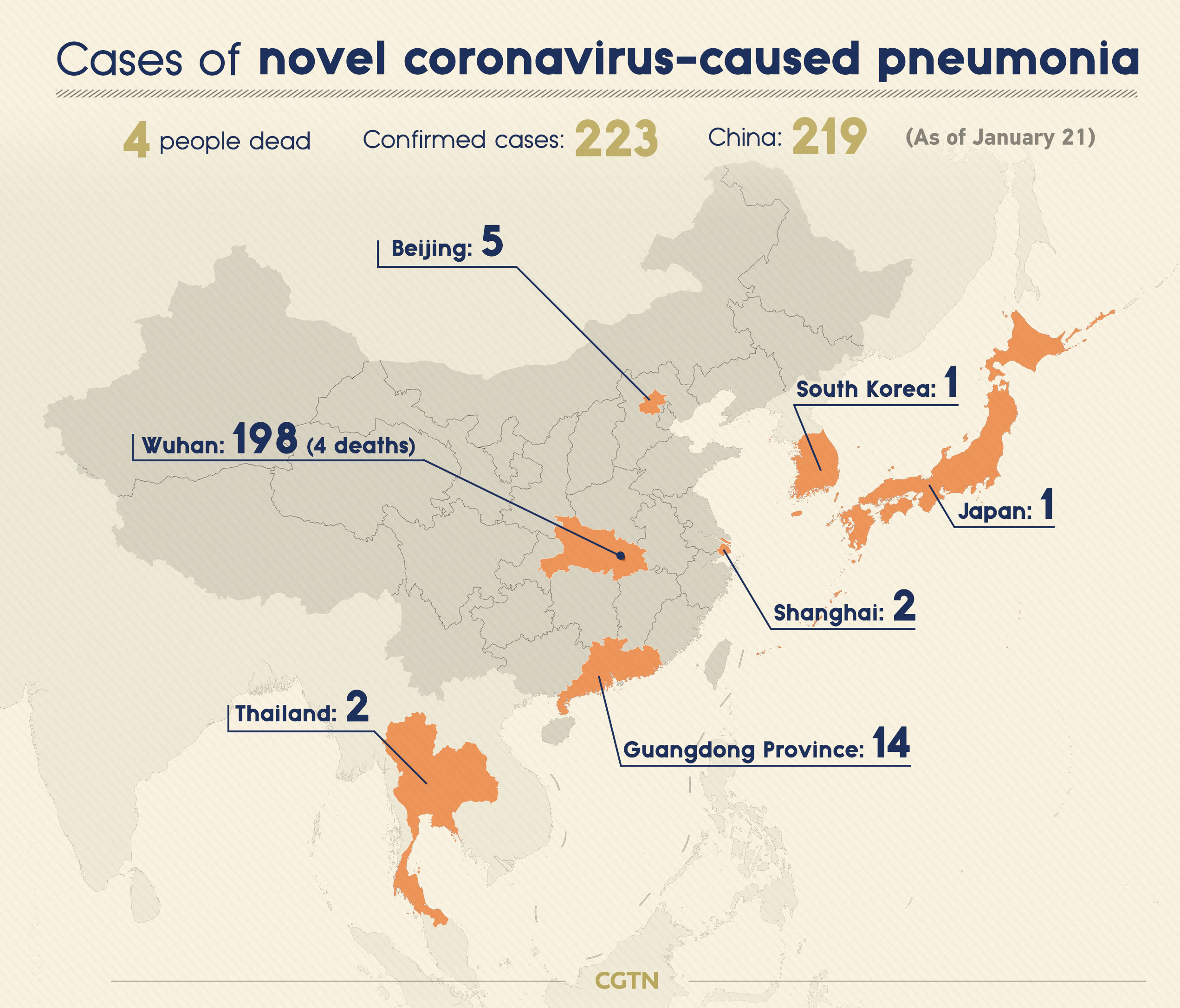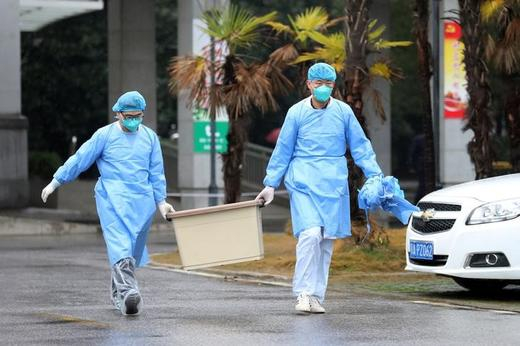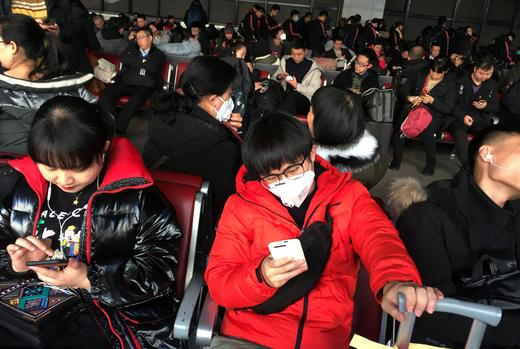China is racing to contain the coronavirus outbreak in Wuhan as confirmed cases rise in other major cities in the country. The outbreak came amid China's Spring Festival travel rush, which begins this week, raising fears that the spread will intensify.
As of January 21, there are a confirmed total of 219 cases in the country, with 198 reported in the city of Wuhan, five cases in Beijing, two in Shanghai and 14 in the southern Guangdong Province. Confirmed cases have also been reported in Japan, Thailand and the Republic of Korea.
The National Health Commission on Monday announced that pneumonia caused by novel coronavirus has been classified as a Category B infectious disease which can be quarantined at the borders,according to a notice released by the Commission.

Source of the virus remains unclear
Experts have deemed the Wuhan virus to be a new coronavirus, different from the ones that gave rise to the severe acute respiratory syndrome (SARS) epidemic in 2003 and the Middle East Respiratory Syndrome (MERS) in 2012.
The coronavirus was first reported on December 31 last year at a seafood market in Wuhan. Many of the infected individuals had come into contact with people from the city. Ninety-five percent of confirmed cases were related to Wuhan, with patients coming from or going to the city. The seafood market has been shut down for disinfection.
Scientists had found that previous coronaviruses were probably transmitted from animals to humans – SARS was allegedly transmitted from civet cats in Guangdong Province, while MERS was traced back to camels.

Medical staff at Wuhan Jinyintan Hospital, where patients with pneumonia caused by the new strain of coronavirus are being treated, January 20, 2020. /Reuters Photo
Although the origin of the Wuhan coronavirus is still under investigation, there is strong evidence of the disease transmitting from human to human. Zhong Nanshan, a respiratory expert now leading the panel on the outbreak for China's National Health Commission, told CGTN that two patients in Guangdong Province who were infected with the same virus had never been to Wuhan, implying that they couldn't have contracted the disease from another animal source in the city's seafood market.
"We can say now that it is certain that the virus spread from person to person," said Zhong, adding that 14 medical staff were also infected with the virus.
Comparison with the 2003 SARS outbreak
Due to the lingering memory of the SARS outbreak in 2003, there are fears that the Wuhan virus would trigger a national emergency similar to the one in 2003.
Zhong noted that even though the symptoms of the patients drew parallels, the Wuhan coronavirus is not yet as serious as SARS.
"Personally, I am confident that the situation with SARS 17 years ago will not repeat. We identified the coronavirus in two weeks and now we also have a better system of monitoring and quarantine," he said during a press conference on Monday.

Passengers wearing masks are seen at the waiting area for a train to Wuhan at the Beijing West Railway Station, ahead of the Spring Festival, January 20, 2020. /Reuters Photo
The symptoms of those who contract this new virus mainly consist of fever indicative of acute respiratory infections, according to the World Health Organization (WHO). The health body also noted that infection can cause pneumonia, kidney failure and even death.
WHO recommends that people take the necessary precautions in preventing its spread by washing their hands, covering the mouth and nose when coughing and sneezing, and thoroughly cooking meat and eggs. It also suggested avoiding close contact with people who show symptoms of respiratory illness.
China has the primary role in gathering information, and the local Center for Disease Control and Prevention (CDC) and national CDC have done a very responsible job thus far, Eric Rubin, editor-in-chief of The New England Journal of Medicine, told CGTN.
He said the Chinese CDC has been very transparent, sharing every information they have on a daily basis, and thus the international CDC can collaborate closely with the Chinese CDC based on the shared information.
Shadow cast over Spring Festival travel
The viral outbreak comes as Chinese citizens prepare to travel during Spring Festival in the biggest annual human migration on the planet. However, WHO hasn't recommended any restrictions on travel or trade.
On the other hand, Zhong, the health expert who also helped identify SARS during the outbreak, noted that there should be measures to prevent further spreading of the virus from Wuhan, such as setting up checkpoints in the city's transport hubs to check the body temperature of travelers. He also urged local governments to assume responsibility in curbing the disease, as more cases are to be expected during the festival travel rush.
"If you are already feeling sick, especially if you are in Wuhan, you are in no condition to be traveling at all," Zhong advised holiday travelers during Monday's press conference.

An official uses an infrared thermometer on a traveler at a health screening checkpoint at Wuhan Tianhe International Airport, January 21, 2020. /AP Image
Wuhan officials have been using infrared thermometers to screen passengers at airports, railway stations and major transport hubs. Airports in the U.S. and other Asian countries are also screening passengers traveling from Wuhan.
Meanwhile, Chinese officials and health experts are using their experiences with the previous epidemics to deal with the Wuhan virus.
The country's National Health Commission has shared the genetic sequence of this novel coronavirus with WHO so that different actors can start developing specific diagnostic kits and treatment options. This collaborative approach by China with global organizations has been reassuring, WHO stated.
Cases of infection are likely to increase during this time of year, but even if that happens, people shouldn't panic, added Zeng Guang, another expert on the panel. "If we have learned our lessons from SARS, we should know that mass hysteria causes more damage than the disease itself," he said.
(CGTN's Henry Zheng, Zhou Minxi, Yu Jing contributed to the story.)
 简体中文
简体中文

